DMU RESEARCH PROJECT (EFFICACY OF TEST METHODOLOGIES)
After over 24 months of science and over 1700 individual lab tests, we are closer to the conclusion of this project.
Background
Although BS EN 14065 provides an effective framework for disinfection certification, the laundries/home users and OPLs are given a fair deal of independence in relation to the methodologies they can employ to verify disinfection. This leads to a problem in undertaking microbiological work on textiles and disinfection as there are no agreed standard test methods. Furthermore, the bio-burden results can significantly vary depending on the chosen method of testing. The TSA Board considered significant advantages of developing ‘the’ test protocol that measures bacterial “kill” with best possible results and practicality. If backed by good research capabilities, this can bring to light the effectiveness of industrial process over a domestic process.
Partnerships
We are working closely with several National Associations – TRSA (the American Association) and ETSA (the European Association) are primary funding partners and actively help the Project Group lead this research. We have a strong Project Group that leads the project and an engaging Observer Group who receive frequent project updates.
PROJECT PROGRESS
COVID-19 RESEARCH
De Montfort University Covid-19 research has now been successfully peer-reviewed and approved. The TSA congratulated the DMU research team (Katie, Lucy and Maitreyi) for concluding yet another world-class study and thanked them for working with the textile services industry. The publishing journal mSphere, the multi-disciplinary open access journal is edited by highly reputed Board of Editors. This paper elaborates on the methodologies and key findings which we were able to summarise before for your information. Please click below to download the Covid-19 study. Feel free to share with your members, customers and colleagues.

The main findings below. The summary is that a wash programme with decent detergents at not too high temperatures can get rid of Coronavirus in textiles. With temperature alone, they could not find traces of the virus at 67°C for 10 minutes. In light of these conclusions, the researchers also point to the importance of robust laundry processes that can segregate clean linen from soiled linen. The industrial processes are more equipped to mange this succesfully than OPLs or domestic processes due to the advantages of advanced infrastructure and effective personnel staff training.
- The aim of this project was to investigate stability of model human coronavirus HCoV-OC43 on different textile fibre types and determine their persistence on textiles during domestic and industrial laundering processes.
- In all investigations, the quantity of infectious virus was determined by titrating on susceptible mammalian cells, as opposed to determining the presence of viral nucleic acid which does not distinguish between infectious and non-infectious virus.
- HCoV-OC43 remained infectious on polyester for at least 72 hours and cotton for 24 hours.
- HCoV-OC43 in particular can persist on polyester and transfer to other surfaces for 72 hours, suggesting that textiles may be a fomite transmission risk within the healthcare and domestic environments.
- Model coronaviruses can remain infectious in water at low temperatures (≤40°C) and after laundering in a domestic washing machine at ambient temperature in the presence of interfering substances (artificial salvia). However, they are sensitive to thermal disinfection temperatures (67-75°C) in water and are removed from textiles by the dilution and agitation (ambient temperature) of industrial laundering processes.
- Stability of HCoV-OC43 was tested at 1) 50°C & 60°C in water, 2) Full wash cycles. No traces of the virus at 67°C for 10 minutes.
SCOPE OF THE TEST METHODOLOGY PROJECT
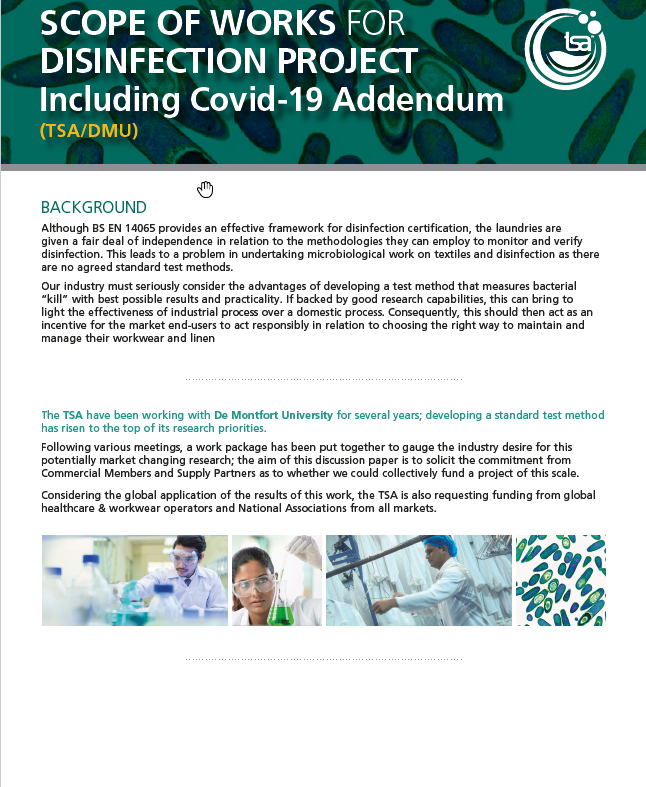
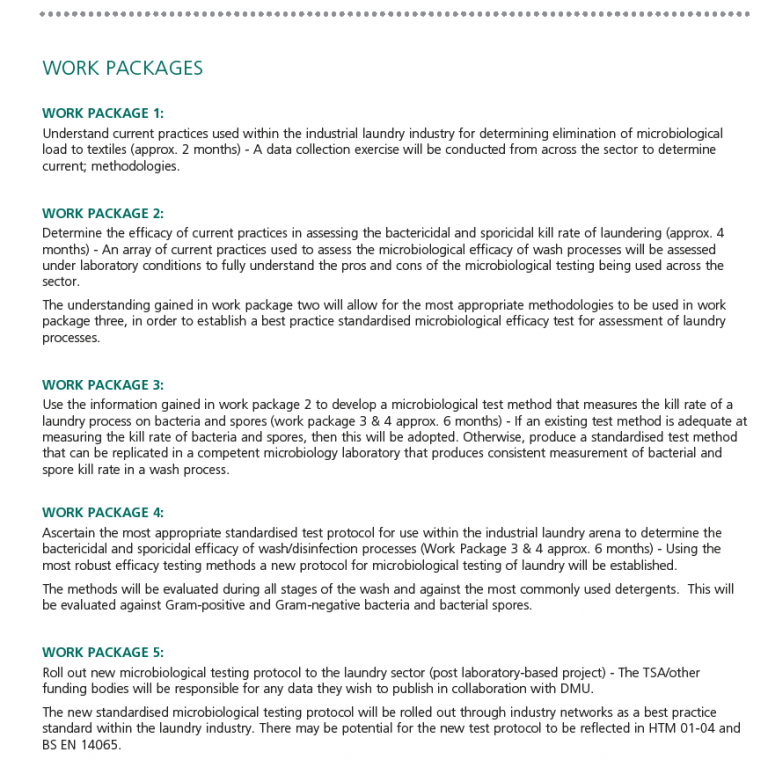
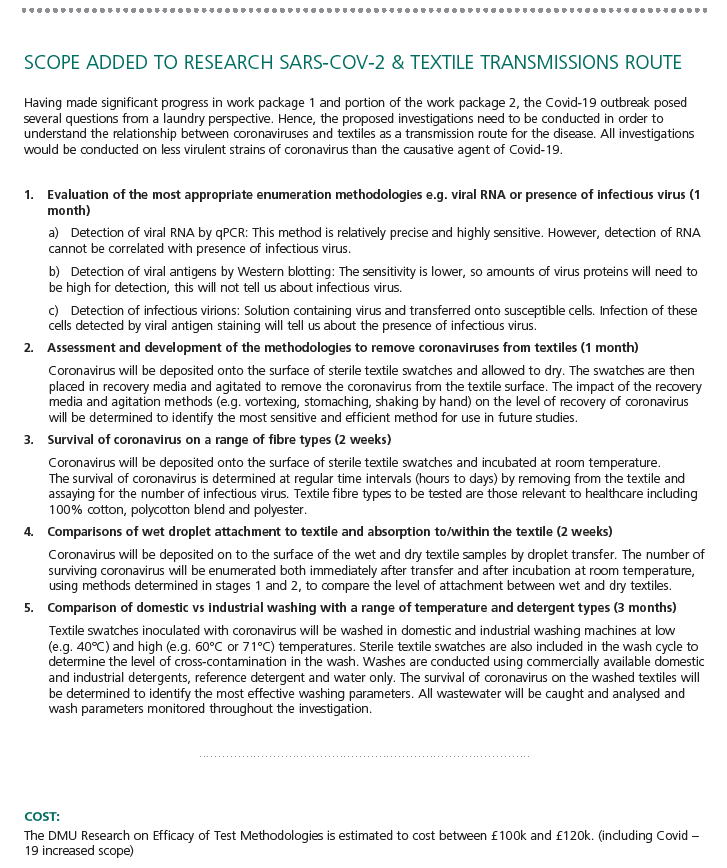
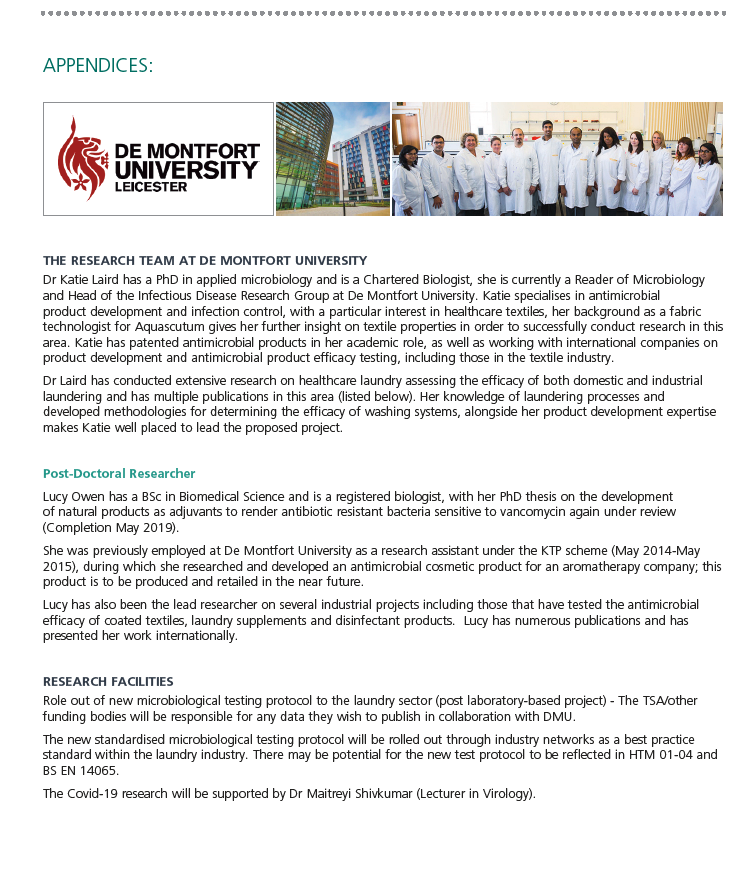
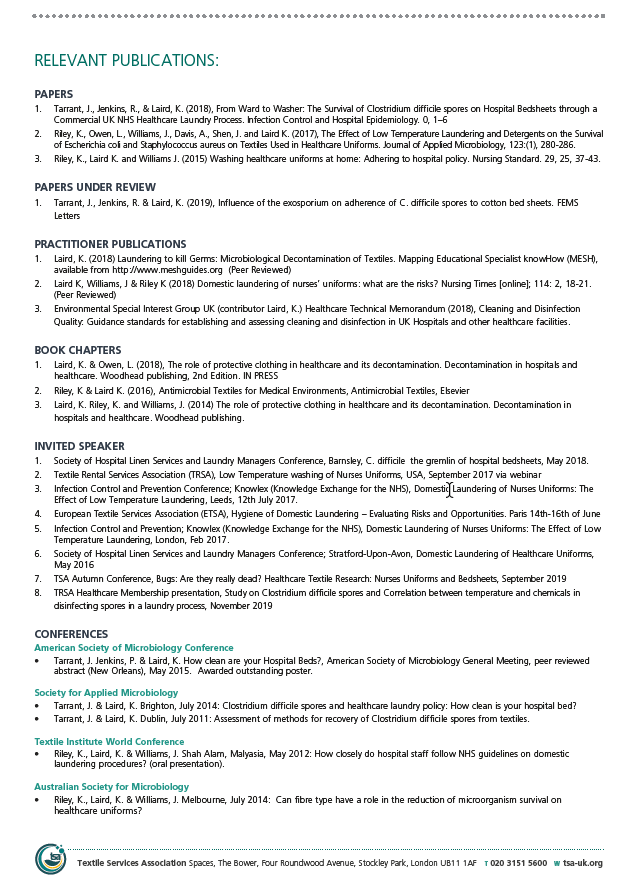
PROJECT GROUP
- Simon Fry, Micronclean
- Prof. Katie Laird, DMU
- Dr Caroline Cayrou, DMU
- Davey Stoker, Micronclean
- Amanda Potts, Synergy LMS
- Gary Youngson, Elis
- Rachel Kahrman, Elis
- Shyju Skariah, TSA
- David Stevens, TSA
Primary Funding Partners
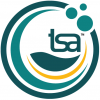
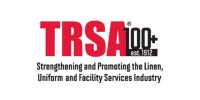
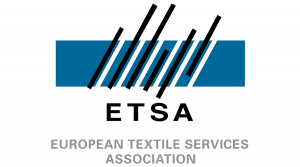
National Associations Partners
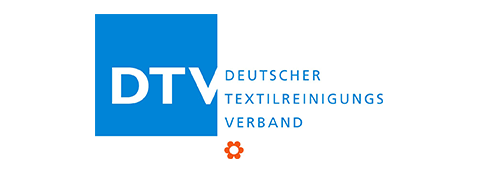
Tekstiilihuolto

German Association
Finnish Association
Norwegian Association
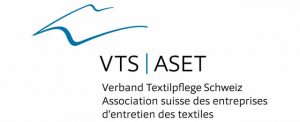

Swiss Association
Belgian Association
